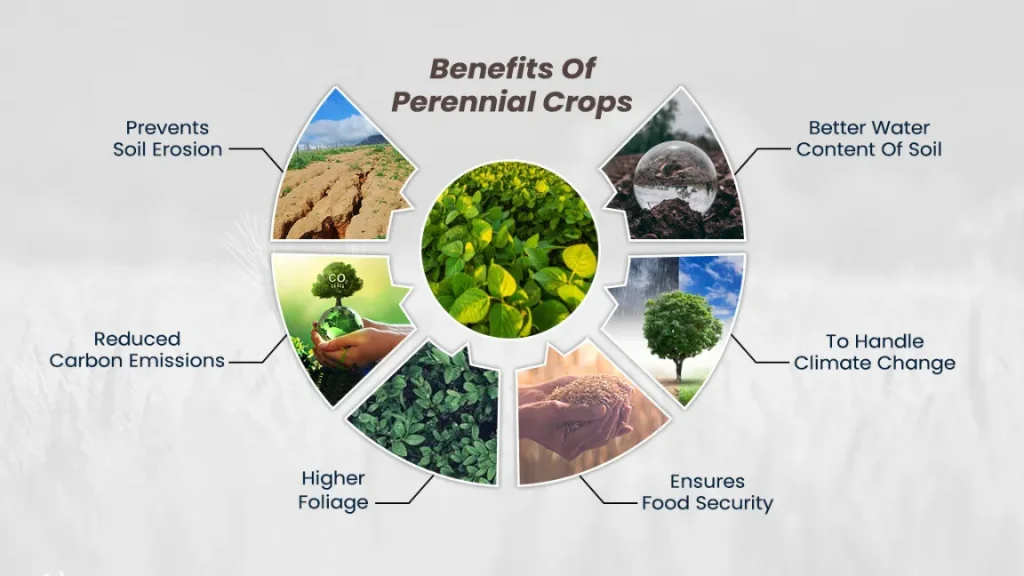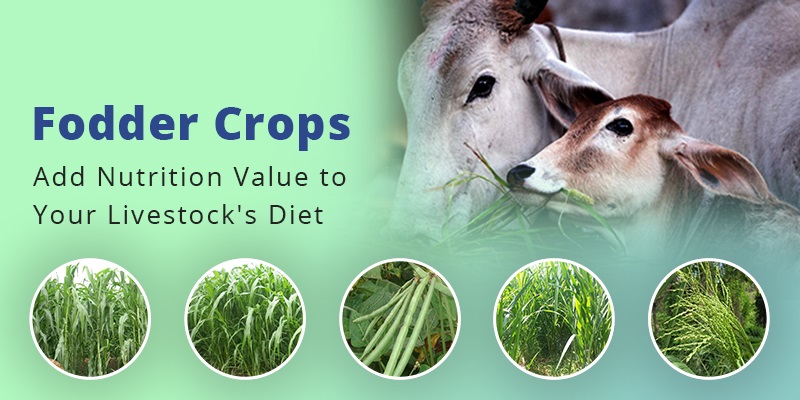Perennial Crops, have you ever wondered what it would be like to grow food that you don’t have to replant every year? Imagine having a garden or an orchard that produces a harvest for many seasons without needing much maintenance. Sounds too good to be true, right?
Well, it’s not. There are many plants that can do just that, and they are a great way to enjoy home-grown food year after year with less work and more benefits.
In this blog post, you will learn:
- What are Perennial Crops, and how they differ from annual crops
- What are best examples, that you can grow in your backyard or on your farm
- What are the benefits, for the environment, your health, and your wallet
What Are Perennial crops?
They are plants that live for more than two years and can be harvested repeatedly. Unlike annual crops, which need to be replanted every year, continue to grow and produce a yield for several years without needing to be replanted.
It include all tree crops, such as apples, citrus, nuts, coffee, chocolate, oil palm, and many more. They also include some herbs, vegetables, fruits, and legumes, such as basil, chives, garlic, ginger, asparagus, grapes, rhubarb, spinach, sweet potato, yams, and others.
This type of crops have been cultivated for thousands of years, and they are a natural part of many ecosystems. However, they only make up about 13% of global cropland, while annual crops take up about 70% of global cropland and global caloric consumption.

Best Examples Of Perennial Crops
Depending on your climate and soil conditions, you can grow many varieties in your backyard or on your farm. Here are best examples that are easy to grow and have multiple uses:
| Best Examples | Description |
|---|---|
| Asparagus | This vegetable is one of the first to emerge in the spring, and it can produce for up to 20 years if kept weed-free. You can harvest the tender shoots and enjoy them fresh, cooked, or preserved. Asparagus is rich in fiber, vitamin C, folate, and antioxidants. |
| Rhubarb | This plant is known for its tart and tangy stalks that are used to make pies, jams, sauces, and other desserts. Rhubarb can also be eaten raw or cooked as a vegetable. Rhubarb is a good source of vitamin K, calcium, potassium, and manganese. |
| Grapes | This fruit is not only delicious and nutritious, but also versatile. You can eat grapes fresh, dried, or frozen, or make them into juice, wine, vinegar, or jelly. Grapes are high in vitamin C, antioxidants, and resveratrol, a compound that may have anti-aging and anti-inflammatory effects. |
| Mint | This herb is a perennial favorite for its refreshing flavor and aroma. You can use mint leaves to make tea, lemonade, mojitos, salads, sauces, and more. Mint is also a natural remedy for digestive problems, headaches, and bad breath. |
| Blackberries | This fruit is a perennial treat that grows on thorny bushes or vines. You can pick blackberries in the summer and enjoy them fresh, frozen, or preserved. Blackberries are rich in vitamin C, fiber, anthocyanins, and ellagic acid, which may have anti-cancer and anti-viral properties. |

Benefits Of Perennial Crops For Environment, Health & Your Wallet
Growing this type of crops has many benefits for the environment, your health, and your wallet. Here are some of them:
Erosion Control
Crops have deeper and more fibrous roots than annual crops, which help them hold onto soil moisture and prevent soil erosion due to wind and water. This also improves soil health and fertility by increasing organic matter and microbial activity.
Water Use Efficiency
Use water more efficiently than annual crops, because they don’t need to be irrigated as often and they can access water from deeper soil layers. This reduces water consumption and runoff, and protects groundwater quality by filtering pollutants.
Nutrient Cycling Efficiency
Use nutrients more efficiently than annual crops, because they don’t need to be fertilized as often and they can absorb nutrients from deeper soil layers. This reduces nutrient loss and leaching, and lowers production costs and environmental impacts.
Light Interception Efficiency
This type of crops have longer and earlier green leaf duration than annual crops, which means they can capture more sunlight and convert it into biomass and yield. This increases plant productivity and carbon sequestration, which helps mitigate climate change.
Biodiversity Conservation
It provides habitat and food for a variety of wildlife, such as birds, insects, and mammals. They also support pollinators, which are essential for crop production and ecosystem services. And also preserve genetic diversity by maintaining landraces and heirloom varieties that have adapted to local conditions over time.
Food Security And Sovereignty
Perennial Crops offer a more reliable and resilient source of food than annual crops, because they can withstand drought, frost, pests, and diseases better. They also provide a more diverse and nutritious diet, as they can supply food throughout the year and across seasons.
And also empower farmers and communities by reducing their dependence on external inputs and markets, and enhancing their self-reliance and autonomy.

Conclusion
Perennial crops are a great way to grow food that lasts. They have many benefits for the environment, your health, and your wallet, and they are easy to grow and maintain.
See Also:
Palworld Farming: How To Grow And Harvest Food With Your Pals
Contour Plowing: How Does Work, Implements And Benefits
What Is O Farming: Make Money Online, Get Start & Benefits
Bamboo Farming: Types, Cultivation & Economic Opportunities
What Is Permaculture: Why Should You Care, Benefits & Challenges
Flower Farming: Business, Make Money And Benefits

Meet Our Expert Agricultural Administrator
Welcome to agrigreenhands.com, your dedicated hub for all things related to agricultural farming. Leading the way in our commitment to sustainable and innovative practices is Jawad Hussain, our esteemed administrator with a profound background in agriculture….


